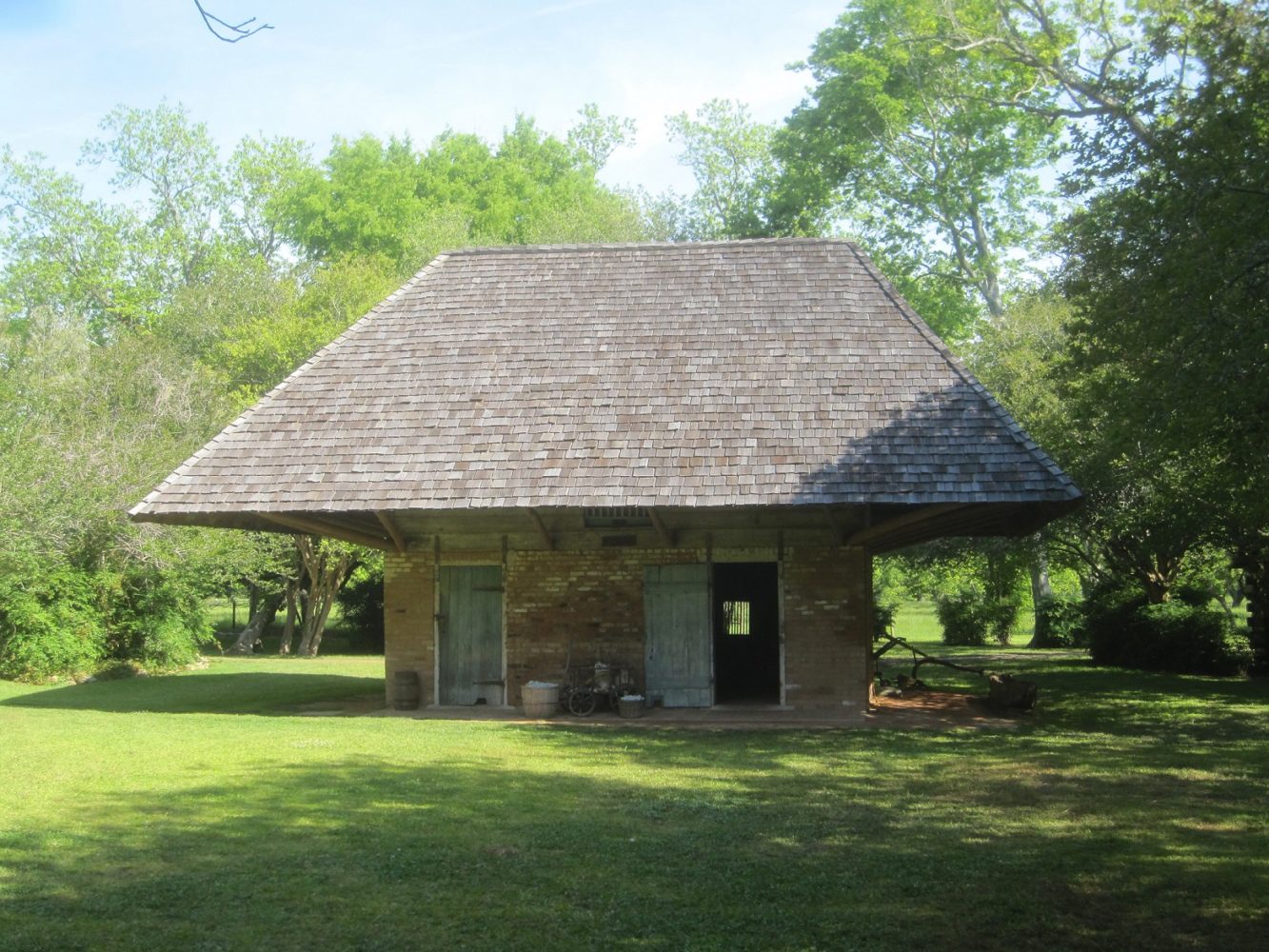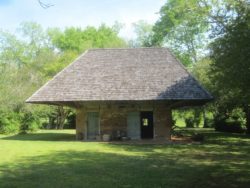Magazine
Melrose Plantation
A rare example of an Afro Creole-owned plantation
Published: August 30, 2019
Last Updated: June 1, 2023

Photo by Eddie Cazayoux
The second floor of African House at Melrose Plantation contains murals by Clementine Hunter.
Born Marie Thérèse and known as “Coincoin,” the matriarch of the Metoyer family made a name for herself in 1700s Cane River country as a freed slave turned prominent property owner. Coincoin gave birth to ten children while in a relationship with wealthy white merchant Pierre Claude Thomas Metoyer, who initially leased her from her owner before purchasing and ultimately freeing her and some of their children. Metoyer also deeded a nearly seventy–acre tract of land to Marie Thérèse, and in 1796, her son Louis Metoyer established Yucca Plantation, later renamed Melrose. Soon after, the plantation’s first buildings were constructed: Yucca House, African House, and a large barn. Yucca House had a half-timbered, or colombage, frame with bousillage infill. African House consisted of a single–room, raised–brick basement with a ten-foot overhang around a hip roof. The traditional barn was constructed in post-and-plank style. Construction of the Big House, initially a two-room raised cottage, began in 1832.
The Metoyers became Cane River country’s leading free Creole family of color, but financial problems in 1847 forced them to sell the plantation. Today their legacy lives on at what is now Melrose Plantation, where the structures the Metoyers built have been preserved and maintained. They are open to the public year-round.
Visitors can see the beauty of Melrose and other historic sites the weekend of November 1, when the Louisiana Architecture Foundation and the Institute of Classical Architecture & Art sponsor a Cane River Tour. For more information, visit louisianaarchitecture.org/events or contact [email protected].
Stacey Pfingsten is Executive Director at the Louisiana Architecture Foundation.
